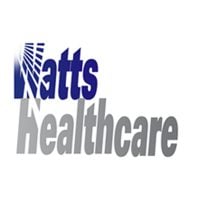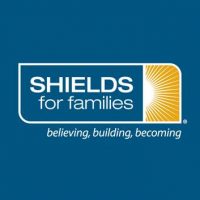MJB Transitional Recovery
Drug Rehab Center in Los Angeles, California
MJB Transitional Recovery is a Los Angeles-based treatment center that specializes in providing evidence-based, trauma-informed treatments and therapies for alcoholism, substance abuse, and opioid addiction, including dual diagnosis, outpatient and intensive outpatient services, sober-living and half-way house support, group and trauma therapy, and individualized plans for patients and their families.
About MJB Transitional Recovery in California
MJB Transitional Recovery is a premier alcoholism and substance abuse treatment facility located in Los Angeles, California. With a strong focus on helping individuals overcome their addiction and achieve long-term sobriety, MJB Transitional Recovery offers a variety of treatment options and levels of care. Their services are specifically tailored to those suffering from alcoholism, substance abuse, opioid addiction, and dual diagnosis, making them a great choice for individuals looking to recover from a wide range of addiction issues.
At MJB Transitional Recovery, clients can expect a comprehensive and individualized approach to treatment. Their facility provides dual-diagnosis assessment and treatment, addressing both addiction and any underlying mental health disorders that may be contributing to the addiction. With both outpatient and intensive outpatient programs available, individuals have the flexibility to receive treatment while still maintaining their daily responsibilities. Additionally, MJB Transitional Recovery offers a sober-living and halfway house program, providing a safe and supportive environment for individuals in the early stages of recovery. Through a combination of evidence-based therapies, holistic approaches, and ongoing support, MJB Transitional Recovery strives to guide individuals towards lasting recovery and a healthier, more fulfilling life.
Genders
Ages
Modality
Additional
Conditions and Issues Treated
Substance Abuse Treatment is important when getting sober, as it helps addicts learn the skills they need to live a clean life. There are many different kinds of recovery treatment, including but not limited to medication-assisted therapy, behavioral therapeutic approaches, self-help groups, and counseling. Each treatment has its benefits that help addicts recover.
Counseling can help addicts learn the skills they need to live sober lives. It can be used to treat underlying mental health issues, like depression or anxiety, that could lead to relapse. Counseling can also help people find work, deal with family problems, and learn to manage living without drugs.
With so many people addicted to opioids, we need to help those who want to quit. The cycle begins when opioid addicts take opioids for a painful injury. When someone starts taking their medication differently or in excess, it means they’re addicted and at risk of overdosing.
In , detoxing from these types of treatments is the most effective way to beat this. Most facilities begin with medical assistance and then provide counseling services; rehabilitation follows after successful treatment.
Dual diagnosis refers to someone who has both an addiction and a mental or emotional illness. Dual diagnosis treatment includes therapy for both issues simultaneously, allowing for effective treatment of either.
Sometimes people with addiction disorders also have co-occurring disorders like depression, anxiety, bipolar disorder, etc. These require specialized treatment programs that address both drug and alcohol addiction as well as psychiatric illnesses. Some rehabilitation facilities provide patients with co-occurring disorders a program with highly integrated services and a clean, distraction-free environment.
Levels of Care Offered
This center offers a variety of custom treatment tailored to individual recovery. Currently available are Dual-Diagnosis, Intensive Outpatient, Outpatient, Sober-Living / Half-Way, with additional therapies available as listed below.
An intensive outpatient program (IOP) is effective for drug rehab, but it can take six months to several years to complete. It’s the most popular type of drug rehab program in the United States. One example of a successful IOP success story is actor and comedian Chris Rock, sober since 1990.
An IOP allows participants to spend nights at home while attending meetings throughout the day. It’s a good way for drug addicts to make a recovery plan in an outpatient setting while still supporting their loved ones.
Alcohol or drug addiction, or co-occurring disorders, are treated in an outpatient program. The patient must attend therapy and other programs at the facility but can return home each night.
Outpatient treatment allows recovering addicts to live at home while receiving addiction treatment. Outpatients can attend group sessions for a few hours per week. Outpatients may also continue to work full time and study/attend school without interruption if they choose.
Sober living homes, offered by rehabilitation facilities, help recovering addicts transition back into society. These homes have rules and regulations that must be followed to maintain sobriety. They also provide resources such as vocational training and therapy sessions.
Therapies & Programs
Attending group therapy at MJB Transitional Recovery in , is a useful way for those seeking sobriety to realize they aren’t the only one going through it.
This is when a group of people on different recovery phases get together and talk about what they’re going through, their triggers, successes, and failures. This can include alternative types of therapies too! Group therapy may occur on an outpatient or inpatient basis with groups that have no pre-existing relationships outside the session, unlike support groups where everyone already knows each other beforehand.
Trauma therapy is a form of therapy used to help people process and understand past traumas. This can help struggling addicts, as many people turn to drugs or alcohol to mask the pain of their past. Trauma therapy can be done in several ways, such as through visualization, discussion, and writing down thoughts and feelings. The goal is to help the individual understand why they are having problems coping with certain situations and changing how they think and react to things. This is often done in tandem with other therapies to treat the underlying issues associated with addiction.
The idea behind trauma therapy is that while some people can experience traumatic events and not have lasting psychiatric symptoms, many others will. In these cases, memories get hidden from consciousness but continue to influence how the person processes and copes with things in their life. They may avoid situations that resemble what happened or become suddenly angry or irritated to a situation that reminds them of a past event. With the help of a therapist, people can go back over memories and experiences. This helps them understand why they are having problems coping with certain situations and changing how they think and react to things.
Payment Options Accepted
For specific insurance or payment methods please contact us.
Additional Details
Specifics, location, and helpful extra information.
Los Angeles, California 90061 Phone Number(323) 777-2491 Meta DetailsUpdated November 25, 2023
Staff Verified
MJB Transitional Recovery Patient Reviews
There are no reviews yet. Be the first one to write one.
Los Angeles, California Addiction Information
More than 3 million of California's citizens are addicted to illegal drugs. Almost 800,000 people use hard drugs, almost 5 million use marijuana, and another 2.1 million abuse alcohol every year. Other substance abuse issues such as binge drinking and teen drug use are also common. Many illegal drugs such as cocaine, heroin, methamphetamine, and marijuana are smuggled into the state from Mexico.
10% of adults in Los Angeles have used illicit drugs or abused prescription drugs within the past year. Heroin, marijuana, prescription pain relievers and cocaine are widely abused in Los Angeles. Over 130,000 people in the city struggle with addiction to drugs or alcohol. Many residential rehab facilities in the area can provide long-term care. The best way to find the right treatment option is to speak with a professional.
Treatment in Nearby Cities
- Oxnard, CA (54.9 mi.)
- Eureka, CA (574.6 mi.)
- Agoura Hills, CA (31.8 mi.)
- Santa Fe Springs, CA (10.8 mi.)
- Walnut Creek, CA (347.4 mi.)
Centers near MJB Transitional Recovery
The facility name, logo and brand are the property and registered trademarks of MJB Transitional Recovery, and are being used for identification and informational purposes only. Use of these names, logos and brands shall not imply endorsement. RehabNow.org is not affiliated with or sponsored by MJB Transitional Recovery.


